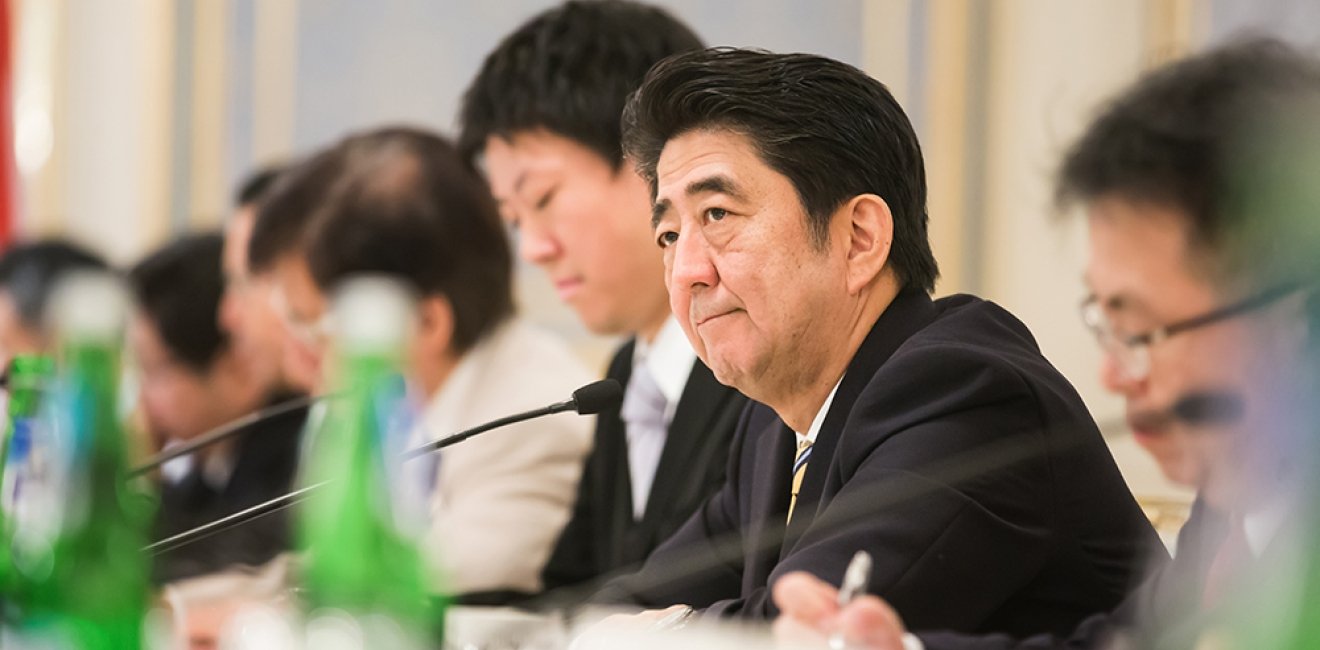
A blog of the Indo-Pacific Program
It is natural for countries to feel anxious when their security depends on the commitments of an ally. This is why a critical part of American foreign policy since the end of the Second World War has been to reassure its allies in Europe and Asia alike that its commitment to their defense was rock-solid. History has also demonstrated that allies, when less certain about Washington’s security guarantee, begin to look elsewhere.
In recent years, China’s military has grown increasingly capable and North Korea has made significant advancements in its military capabilities. Considering the threat these countries pose to Japan, it is no wonder that Tokyo has become more concerned about its own security and has sought for greater assurances from Washington about the continued commitment of the United States to the security of Japan. And Washington has responded – both President Obama and President Trump have clarified that U.S. extended commitments include islands that are administered by Japan but claimed by China.
Considering the threat these countries pose to Japan, it is no wonder that Tokyo has become more concerned about its own security...
Yet such statements have not been sufficient to entirely mollify Tokyo’s anxieties. Japan has recently enhanced both the capabilities of its Self-Defense Force (SDF) as well as the guidelines under which they can operate, and Prime Minister Abe has ambitions to “normalize” Japan by amending Japan’s pacifist constitution and allowing the SDF to operate like a military force. Claims by officials in Tokyo that these efforts will allow Japan to contribute more to the Alliance, while certainly true, also give Japan more options to operate independently from the United States should Washington fail to follow through with its commitments.
Diplomatically, Prime Minister Abe has also sought to diversify Japan’s foreign policy relationships. While he has taken herculean efforts to build a strong relationship with President and remains a champion of the U.S.-Japan Alliance, Abe has also driven a foreign policy that is making Japan a driver of regional economic integration and a regional order governed by laws and norms. This has been in part driven by concerns about the implications of a rising China, but more acutely by a sense that the United States can no longer be relied upon as a driver of those principles.
For these same reasons, Abe has recently sought to diversify Japan’s relationships by improving Japan’s relations with China and by forging stronger ties with India. The latter effort will almost certainly be of greater consequence; indeed, while the U.S. media focused on Abe’s recent visit with Chinese General Secretary Xi Jinping, they largely ignored the more consequential visit he had with Indian Prime Minister Narendra Modi. Not only did Abe agree to extend almost $3 billion in loans to India to build more infrastructure, but the two sides announced the beginning of negotiations on an Acquisition and Cross-Servicing Agreement (ACSA), which would be a significant boon for security cooperation between Delhi and Tokyo. This builds on other cooperative initiatives that Japan and India have pursued in recent years, such as the Asia-Africa Growth Corridor and various infrastructure projects in South and Southeast Asia.
Perhaps most significantly, Japan’s stewardship of the Trans-Pacific Partnership (TPP) is paying dividends.
Perhaps most significantly, Japan’s stewardship of the Trans-Pacific Partnership (TPP) is paying dividends. When President announced the U.S. withdrawal from TPP negotiations, many believed it was dead. But Abe championed a regional trade agreement between 11 Pacific nations but without the United States, re-named the Comprehensive and Progressive Agreement for Trans-Pacific Partnership (CPTPP). Australia recently ratified the CPTPP, crossing a critical threshold of support among the member nations and setting the stage for the agreement to enter into force 60 days hence.
A more active and energetic Japan is certainly in America’s interest. With our shared values and common interests, Japan is a terrific ally and partner for the United States. Yet the cause of this activity – concerns about the reliability and efficacy of American power – should be concerning for Washington. It is a natural and understanding reaction for Japan to act this way. The key for Washington will be to harness this activity and work Tokyo to advance our common interests and common values, rather than stand on the sidelines of regional geopolitics and watch others take the lead and hedge their bets.
Image: Drop of Light / Shutterstock.com
Follow Abraham Denmark, director of the Asia Program, on Twitter @AbeDenmark.
The views expressed are the author's alone, and do not represent the views of the U.S. Government or the Wilson Center. Copyright 2018, Asia Program. All rights reserved.
Author


Indo-Pacific Program
The Indo-Pacific Program promotes policy debate and intellectual discussions on US interests in the Asia-Pacific as well as political, economic, security, and social issues relating to the world’s most populous and economically dynamic region. Read more





